Yasumoto Award
Dr. Beatriz Reguera
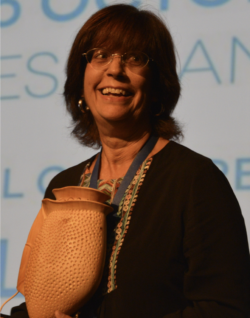
The ISSHA 2018 Yasumoto Award was given to Dr. Beatriz Reguera (Spain) for her contributions to the field of harmful algal bloom ecology, population dynamics, monitoring and management.
Beatriz is Research Professor at the Harmful Microalgae Group, IEO Oceanographic Centre in Vigo (NW Spain) (http://vgohab.es). Originating from Cuba, she was awarded a Doctor in Biology from the University of Barcelona. She has 30+ years experience in HAB biology, autoecology, population dynamics, monitoring and management, with a focus on Dinophysis species that produce diarrhetic shellfish toxins which cause lengthy shellfish harvesting closures in Atlantic coastal waters in Europe. B. Reguera’s objective has been to obtain knowledge of species-specific differences (niche descriptions) and the physical-biological interactions driving the initiation, development and decline of Dinophysis in upwelling-influenced and stratified systems. Many of us remember her enthusiasm in explaining the polymorphic life cycles and behaviour of Dinophysis species, and the design of field sampling strategies to estimate their physiological parameters in situ.
She has published 116+ articles (h=25) in national and SCI international journals, worked as principal investigator on national and European Union funded projects (MIDTAL, ASIMUTH, DINOMA, MARBioFEED, REMNEDIOS, PRIMROSE), and supervised 5 PhD students (Pizzaro-Nova, Velo-Suraez, Escalera-Moura, Diaz-Gomez, Carcia-Portela).
Beatriz most outstanding contribution undoubtedly has been as a tireless mentor, promotor and communicator of HAB research by serving on numerous committees and panels. She hosted the highly successful 8th ICHA conference in Vigo in 1997, served two terms as ISSHA President (2008-2014), was member of the SCOR-IOC GEOHAB Scientific Steering Committee (2002-2006), chaired the ICES-IOC Working Group on HAB Dynamics (Chair 1992-1996), and currently is chief editor of the successful HAN newsletter.
She has positively impacted the lives and careers of many people in HAB research, notably in Spanish speaking nations throughout Latin America and North Africa. This is well demonstrated by her schedule of invited lecturer/ advisor/ United Nations Expert Missions (FAO, IAEA, IOC).
She played a key role in the establishment of the IOC-IEO Science and Communication Centre on Harmful Algae in Vigo. She previously received the 2011 Commemoration Medal IOC 50 Anniversary for her outstanding contribution to the IOC HAB programme 1992-2011.
More information on Dr. Beatriz Reguera’s esteemed career can be found in her Trailblazer writeup on the ISSHA website.
The Patrick Gentien Young Scientist Award
There were no nominations in 2018.
2018 Maureen Keller Student Awards
Marc Long (Best Oral Presentation)
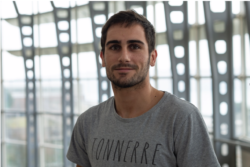
Best student Oral Presentation was awarded to Marc Long from University of Wollongong (UOW, Australia) and Université de Bretagne Occidentale (UBO, France) for his contribution, “A multi-trait approach reveals the physiologic impacts of Cu on Alexandrium minutum and their exudates”.
Marc obtained his Master’s degree in Marine Biology in 2015. In parallel with his university studies, Marc has been working on phytoplankton physiology and chemical ecology since 2011 in the laboratory of marine environmental studies (LEMAR, France) under the supervision of Dr. Hélène Hégaret and Dr. Philippe Soudant. During his studies, he also undertook research projects at the University of Wollongong (Australia) under the supervision of Professor D. Jolley and at the National Oceanic and Atmospheric Administration (NOAA, Northeast Fisheries Science Center, United States) in Milford Connecticut, studying phytoplankton physiology with Dr. Gary H. Wikfors.
The work presented at ICHA2018 was part of his Ph.D. research, revealing that toxic concentrations of Cu increased the allelochemical potency of A. minutum and that the release was related to physiological stress. Overall, this research highlighted a complex interplay between allelochemical interactions and abiotic factors.
Marc is currently submitting his Ph.D. thesis as a collaboration between the University of Wollongong (UOW, Australia) and the Université de Bretagne Occidentale (UBO, France). During his Ph.D. project, Marc characterized the allelochemical interactions between the toxic dinoflagellate A. minutum and the diatom Chaetoceros muelleri. His main interests are the biologic interactions, chemical ecology and microalgal physiology.
Juan Fernández Zabala (Oral Presentation, Honorable Mention)
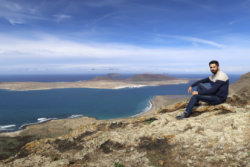
Juan Fernández Zabala was awarded his honorary mention for his presentation on “Are macroalgae a reliable method for the quantification of BHABs“, co-authored with Emilio Soler-Onís, Ana Amorim and Fernando Tuya. Juan was born in the Basque Country, Spain. He studied Biology and Biochemistry at the University of Navarra, taking his last year at the University of Tromso, Norway. During this year, Juan was involved in a project which aimed at the production of biosurfactants from marine hydrocarbon-degrading bacteria at the Norwegian College of Fishery Science. In 2013, he moved back to Spain where he obtained his master´s degree in biotechnology at the Autonomous University of Madrid. The following year, Juan moved to the Canary Islands where he has been living for the past four years. During this time, he has been working at the Spanish Bank of Algae as a glow cytometry technician and participating in monitoring campaigns in the Canary Islands for BHAB risk assessment. Currently he is working on his PhD project in the framework of the European project MIMAR, supervised by Emilio Soler Onis, Ana Amorim and Rogelio Herrera at the University of Las Palmas de Gran Canaria. The main topic of his research is the ecology and bloom dynamics of BHAB dinoflagellates in the Macaronesian region. To address this, several methodologies are being developed to optimize sampling and cell collection and to study the distribution (both horizontal and vertical) of BHAB populations and how different biotic and abiotic factors contribute to this distribution. He is also interested in taxonomy of benthic dinoflagellates using both molecular and morphological approaches.
Océane Reale (Best Poster Presentation)
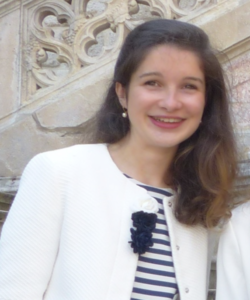
Océane Reale, a PhD Student at ANSES, Laboratory of Fougères (France) in Toxicology in vitro of Food Contaminants, received the award for her poster, “In vitro toxicological assessment of lipophilic phycotoxins on Enteric Glial Cells”, co-authored by Fessard Valerie and Huguet Antoine. She is studying in the science agronomy engineering school (AgroCampus Ouest, Rennes, France) and specializing in Biotechnology for the Health. She had the opportunity to do a 6-month internship in Montréal (Canada) in 2013-2014 in Biochemistry at the University of Quebec where she became fascinated about the word of the research and experimentation. For her last internship and after my engineer diploma, she worked in pharmaceutical industry at Servier (Biologie Servier, Gidy, France) in Preclinical Toxicology in vitro department as a scientific research associate. She worked on the development of 3D HepaRG cell models, a new tool for the evaluation of toxicity of new drugs. Captivated by the toxicology universe, she had the chance to work at ANSES (the French agency for food, environment and occupational health and safety) for a European Food Safety Authority project in genotoxicology evaluating the toxicity of two mycotoxins (Enniatin B and Beauvericin) using a mouse model. She continued her research in toxicology with a thesis project on the development of new cell models of the intestinal barrier of the gut (tri-culture and co-culture with epithelial cells, goblet cells and glial enteric cells), a tool for a best evaluation of toxicity of 6 phycotoxins. This thesis is supervised by Valerie Fessard and Antoine Huguet at ANSES Fougères.
Wai Mun Lum (Poster Presentation, Honorable Mention)
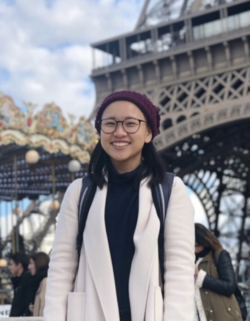
Wai Mun Lum, University of Tokyo, Japan, received the Maureen Keller award for the poster titled, “Phylogenetic and morphological comparisons of Chattonella spp. collected from Southeast Asia”, co-authored by Kazuya Takahashi, Garry Benico, Hong Chang Lim, Po Teen Lim, Chui Pin Leaw, Rhodora Azanza, Elsa Furio, Sandric Chee Yew Leong, Thaithaworn Lirdwitayaprasit, Hikmah Thoha and Mitsunori Iwataki. Born in Malaysia, she pursued Bachelor (with Honors) of Marine Science at the University of Malaysia, Sabah, Malaysia. Aiming to develop biosensors or chemical sensors for shellfish poisoning, she conducted her bachelor graduation research project entitled “Nanosensor based formaldehyde detection of narrow-barred Spanish mackerel”, under the supervision of Dr. Md. Shafiquzzaman Siddiquee. However, she realized that extensive understanding of these harmful algae wa necessary before developing such sensors. Thus, she currently is pursuing her master’s degree at the University of Tokyo, Japan, supervised by Dr. Mitsunori Iwataki, with the support of a Japanese Government (Monbukagakusho: MEXT) Scholarship. Through collaboration with several laboratories in Southeast Asia, she is studying the taxonomy of the harmful raphidophytes Chattonella spp as well as other marine harmful dinoflagellates in that region.

